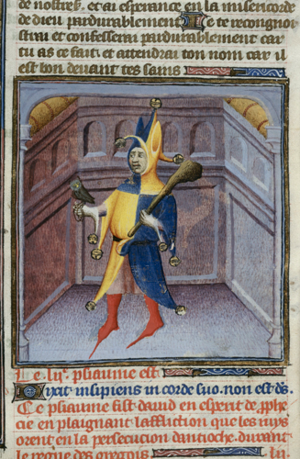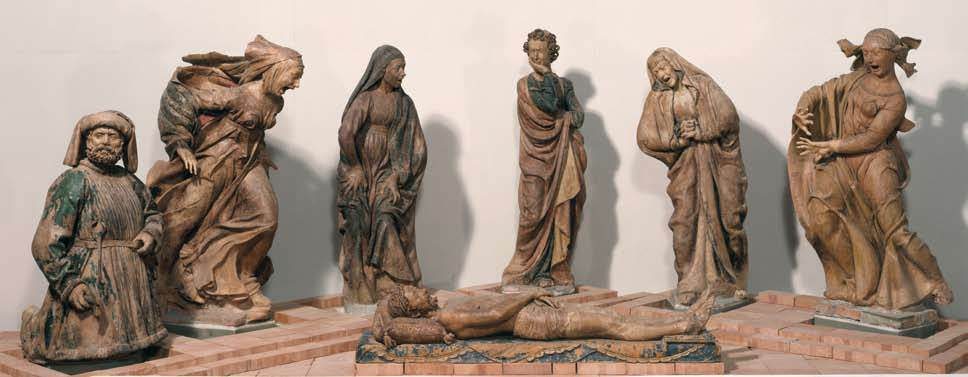
Posted by Laura Williams
10 October 2016Having recently passed the viva for my thesis ‘Painful Transformations: A Medical Approach to Experience, Life Cycle and Text in British Library, Additional MS 61823, The Book of Margery Kempe’, it seems like a timely moment to reflect on the past few months and years of my postgraduate study at Exeter. I am grateful to Professor Vincent Gillespie (Lady Margaret Hall, Oxford) for being my external examiner, Elliot Kendall for being my internal examiner, Eddie Jones for being an ever-patient and supportive supervisor, Catherine Rider as my other, wonderful second supervisor, and James Clark for his encouragement and advice on all things postdoctoral. The Centre for Medieval Studies at Exeter is such an exciting and dynamic environment and I am excited about all of the events that lie ahead.
It might also be an apt moment for me to remind colleagues about the Gender and Medieval Studies Group, which holds an annual, peripatetic conference. The steering committee, made up of medievalists including Liz Herbert McAvoy (Swansea) and Diane Watt (Surrey), ensures the continuation of this important, multidisciplinary event each year. The group, which has gathered each year since the 1980s and which seeks to further the study of gender in medieval culture, was organised this year by Daisy Black at the University of Hull, on the theme of Gender and Emotion.
The history of emotions is a topic of growing interest in the field of Medieval Studies, with projects such as Hearing the Voice at Durham University, the Queen Mary Centre for the History of the Emotions and the Australian Research Council Centre of Excellence for the History of Emotions accelerating the prominence of such enquiry. The Royal Historical Society Postgraduate Speaker Series Conference, ‘Emotion and Evidence in the Late-Medieval and Early-Modern World’ (Cardiff, May 2016), at which I was fortunate to be presenting, also offered the opportunity for early career researchers and established scholars to exchange ideas, with a plenary from Professor Miri Rubin (Queen Mary).
Questions of gender, and the interplay with the history of emotions, made for a stimulating conference programme at the 2016 GMS. Notable papers included Amy L Morgan (Surrey), ‘“reueyd out of hir witt”: Extreme Emotion and Queer Responses in Sir Orfeo, and Jonah Coman (St Andrews), on ‘Grimestone’s book, Grimestone’s body: Freudian melancholy and creation of identity in the Advocates MS 18.7.21’. Linda E. Mitchell (Missouri), in considering the person as political in her paper, ‘“Give Me Back My Son!”: Eleanor of Aquitaine and the Political Use of Emotion’, prompted fruitful discussion on the idea of queens as suffering mothers. The keynote lecture from Katharine Goodland (City University of New York), ‘Ghostly Presences: Mariological Mourning and the Search for Justice in Thomas Kyd’s The Spanish Tragedy’, took reference from several medieval mystery plays in considering the ghostly presence of the Virgin Mary and Kyd’s allusions to medieval depictions of Christ’s Passion.
As well as presenting my own paper on questions of emotion and melancholic woundedness in The Book of Margery Kempe, I was also honoured to be awarded with the annual GMS Graduate Student Essay Prize – an internationally-open competition. The prize was awarded for my essay ‘“Slayn for Godys Lofe”: Melancholia and Mourning in The Book of Margery Kempe’, and includes two years’ free GMS conference attendance. The article is now published in the peer-reviewed journal Medieval Feminist Forum. As I was applauded and congratulated, I felt some heartfelt emotion of my own, proud to be the recipient of the award.
I am now co-editing a volume arising from the conference: Gender and Emotion in Medieval Culture: Uses, Representations, Audiences, with Daisy Black and Amy L. Morgan (under consideration by Boydell and Brewer).


The GMS conference is a great opportunity to share research and make networking connections with other scholars who are interested in all questions of gender in the Middle Ages. It is hugely inclusive, and welcomes diverse approaches and cross-disciplinary papers from both postgraduates and established scholars. The graduate student essay prize is an excellent opportunity, and I encourage Exeter PGRs to enter a piece for the next round. I highly recommend becoming involved – perhaps at the next conference in beautiful Canterbury, in January 2017 – when Anthony Bale (Birkbeck) and Leonie Hicks (Canterbury Christ Church) will be giving keynotes. There is also a mailing list that you can join via the website to keep up to date on events.
This year’s conference closed with a riveting performance of ‘Bawdy Tales’ with Debs Newbold, a one-woman storyteller. Based on Boccacio’s Decameron, the tales were bawdy and comedic indeed, with plenty of audience participation and foolery, providing pathos and hilarity in equal measure. The show was a fitting emotional rollercoaster for what had been a conference of intellectual rigour and medieval felyng par excellence, and certainly one from which I returned with an unusually big smile on my face.
Laura Kalas Williams, Researcher in medieval literature and medicine and Associate Tutor (English department, University of Exeter) [@LauraKalasW, academia.edu]